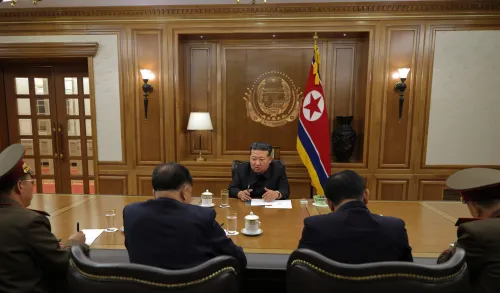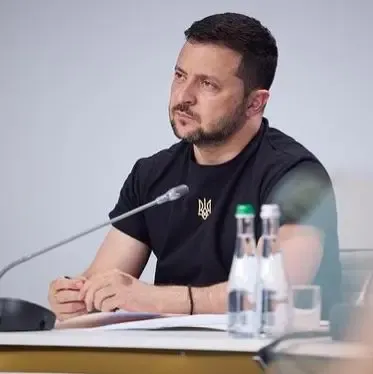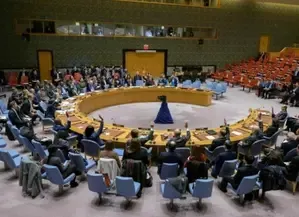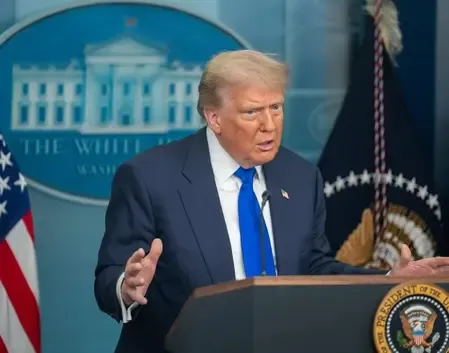Will Trump's Pharma Tariffs Affect India Soon?
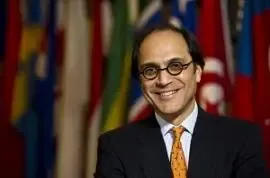
Synopsis
Key Takeaways
- Trump's tariffs on pharmaceuticals currently don't impact India.
- Future tariffs on generic drugs remain a possibility.
- India is negotiating for lower tariff rates with the US.
- Reducing Russian oil imports could signal India's position.
- Continued dialogue is essential for trade relations.
Washington, Sep 27 (NationPress) Bhaskar Chakravorti, the Dean of Global Business at The Fletcher School of Law and Diplomacy at Tufts University, stated that Trump's recent decision to impose 100% tariffs on pharmaceuticals is unlikely to impact India at this moment.
In an exclusive discussion with IANS on Friday, Chakravorti suggested that while he does not foresee immediate repercussions, he cannot completely dismiss future tariffs on Indian generic pharmaceuticals.
“This current initiative regarding tariffs on patented pharmaceuticals will not significantly affect Indian manufacturers right now, but it's dangerously close. Therefore, future tariffs on generic drugs shouldn't be ruled out,” he explained.
On Thursday, US President Donald Trump declared that all patented or branded pharmaceutical products would be subjected to a 100% tariff starting October 1, unless the respective company establishes a manufacturing facility in the US.
Discussing the ongoing talks between India and the United States amidst recent restrictions on H-1B visas, Chakravorti emphasized the importance of continuing negotiations on both trade and visa issues.
“There is a mutual advantage in maintaining these discussions to resolve the tariff situation. Although related, the H-1B visa matter should be negotiated separately,” he added.
According to IANS sources, New Delhi is advocating for a tariff rate of less than 20% in its current negotiations with the United States.
This push for lower tariffs is crucial for India’s competitiveness, especially as other South and Southeast Asian nations face US tariff rates ranging between 15-20%.
Furthermore, sources indicated that New Delhi is also urging the removal of an additional 25% tariff on Russian oil purchases, aligning with the Trump administration's stance that European nations should also limit their imports, reiterating that India shouldn't be uniquely targeted.
However, Chakravorti, a former McKinsey & Company partner, advised that India must seriously contemplate decreasing its Russian oil purchases, viewing it as a significant signal to the Trump administration.
“Any reduction in oil imports from Russia would serve as a major signal from India regarding Trump's policy choices. India can argue that this is economically unfeasible and that it contributes to Trump’s narrative of promoting peace,” he emphasized.
External Affairs Minister (EAM) S. Jaishankar met with US Secretary of State Marco Rubio on Monday at the UN General Assembly, while Commerce and Industry Minister Piyush Goyal and US Trade Representative Jamieson Greer also held what the Indian side termed as “constructive meetings” in New York.
“Both parties discussed potential aspects of an agreement and agreed to continue talks aimed at achieving an early conclusion of a mutually beneficial Trade Agreement,” the Commerce Ministry stated.
Chakravorti recognized that Trump’s existing economic policies are detrimental to the US economy, but noted that there are currently no alternatives for other nations to replace the American market.
“The US economy is already feeling the strain, and this will likely persist, impacting consumer demand. Hence, alternative markets need to be sought. Even grouping 50 markets won’t come close to replacing this deficit,” he asserted.
In both the short and long term, Chakravorti believes India should aim for stronger ties with the United States.
“The primary issue right now is Trump. Yet, to some extent, he is transparent about what displeases him and what pleases him, and how to gain his favor. If India starts with this understanding, it can formulate a strategy accordingly. India needs to work on rebuilding this fractured relationship in both the near and distant future,” he concluded.

